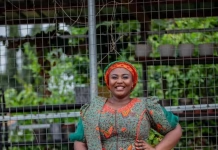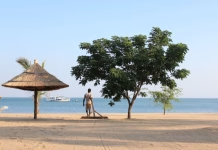
Gifty Ohene says the West African Media Foundation has been biased in offering its opinion on issues related to the rulling NPP Government.
In a letter she wrote to the BBC, Ohene expressed dissatisfaction with the fact that the BBC relied on the West African Media Foundation for its piece on free speech in Ghana.
“I am very sorry to have to say that I am not impressed with your reliance on the West African Media Foundation. Unfortunately, they are no longer in my estimation, in a position to offer unbiased opinions on this government. Nothing wrong with such a position, just as long as it is labelled as such.”
>>> READ FULL TEXT: ELIZABETH OHENE’S LETTER TO BBC ON THEIR PIECE ON FREE SPEECH IN GHANA
The MFWA is a regional independent non-governmental organisation with a network of national partner organisations in all 16 countries in West Africa.
It is the biggest and most influential media development and freedom of expression organisation in the region with UN ECOSOC (Economic and Social Council) Consultative Status and Observer Status with the African Commission of Human and Peoples Rights (ACHPR).
The MFWA also has Equivalency Determination Certification with NGO Source that certifies the organisation as being the equivalent of a public charity in the United States.
The MFWA is also the Secretariat of the Continental Network of the most Prominent Free Expression and Media Development Organisations in Africa, known at the Africa Freedom of Expression Exchange (AFEX) Network.
MFWA also works in partnership with other regional and international organisations through different networks such as IFEX, AFEX, the Africa Freedom of Information Centre (AFIC) and the African Platform on Access to Information (APAI).
The organisation also works closely with the regional inter-governmental body, ECOWAS. It also engages frequently with mechanisms of the African Union (AU) and the UN.
Meanwhile, it is worthy to note that, just about a month ago, Ghana’s Minister for Information, Kojo Oppong Nkrumah singled out the Media Foundation for West Africa (MFWA) and its accountability journalism project, The Fourth Estate, for praise in the testing of the Right to Information (RTI) Act.
Read Also>>> ACCESS TO INFORMATION: GHANA’S INFORMATION MINISTER PRAISES MFWA’S WORK
While responding to questions on the floor of Parliament on the operationalisation of the RTI law on March 15, 2022, the minister said the continuous efforts by the two entities have kept the RTI law alive.
“Let me commend the civil society organisations in particular that have made it a point to test the system for information at various ministries, departments and agencies (MMDAs), and with your permission let me mention, for example, the Media Foundation for West Africa, The Fourth Estate that have done a lot of these applications, ” the Minister said.
The Media Foundation for West Africa (MFWA) has been a leading advocate on RTI Law since the campaign for its passage commenced some two decades ago.
Since the law was passed in 2019, the MFWA has trained about 200 journalists, 150 local government officials, and countless citizens on how to use the RTI law. The organization has also held a number of sensitization forums that have brought together key stakeholders of the law including the Board Chair and Executive Secretary of the RTI Commission.
Aside from sensitization and building capacities on the law including producing simplified versions of the RTI law, the MFWA also trained some citizen groups in the Ada East District Assembly in the Greater Accra Region, Sagnarigu Municipal Assembly in the Northern Region, and Ejura Sekyeredumase Municipal Assembly in the Ashanti Region.
The MFWA guided members of the citizen groups to test the RTI law at the local district levels. The exercise revealed woefully low awareness and non-compliance with the law among local government authorities.


















